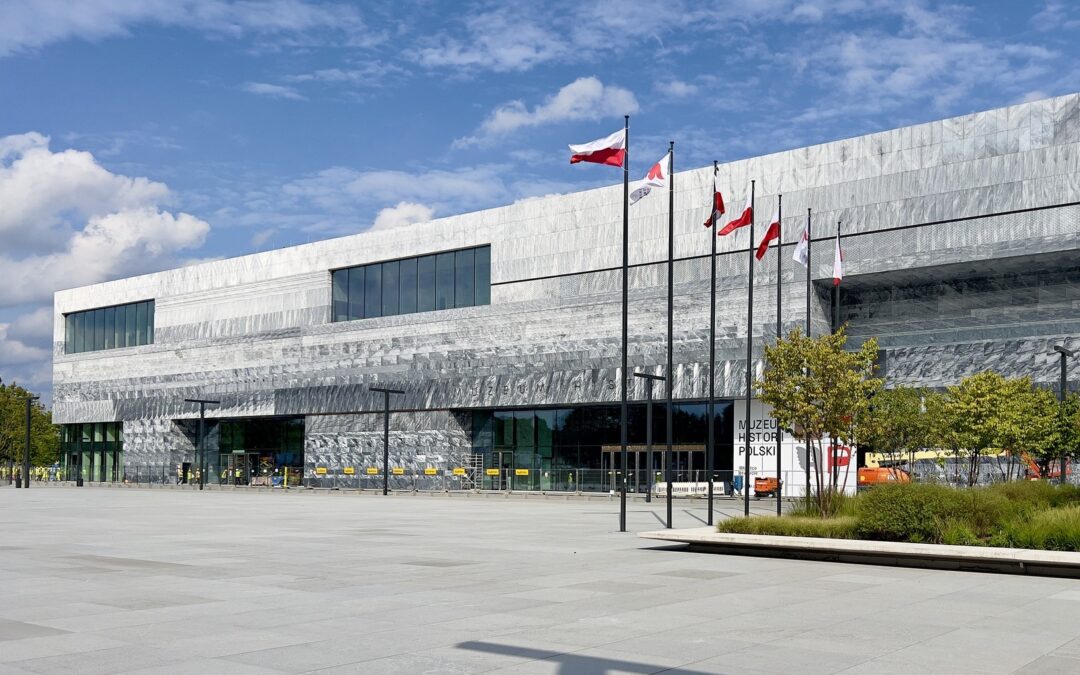Poland’s culture minister has fired the longstanding director of the Polish History Museum (MHP), a major state institution in Warsaw. The decision to remove Robert Kostro, who led MHP for 18 years since its founding, has drawn widespread criticism and accusations of political interference by the government.
On Wednesday, Kostro confirmed to the Polish Press Agency (PAP) that media reports of his dismissal were accurate. Marcin Napiórkowski, a scholar at the University of Warsaw, also revealed that he had been approached to become MHP’s new director.
Rzeczpospolita, a leading daily, reports that culture minister Hanna Wróblewska had two weeks ago sought opinions on dismissing Kostro, who still had three years of his current term remaining. She accused him of failing to properly manage the museum’s funds.
Speaking today to wPolsce24, Kostro confirmed he had been dismissed due to issues relating to the spending of funds, but he denied being responsible for them. He said he will appeal against his dismissal.
🔴 TYLKO U NAS: Wiemy, kto zastąpi dyrektora Muzeum Historii Polski. Fala protestów po zwolnieniu
Kliknij w zdjęcie, by poznać szczegóły 🔽 https://t.co/lB1aLjsr3Q
— Rzeczpospolita (@rzeczpospolita) September 25, 2024
In response to Kostro’s firing, a member of the museum’s council, historian and former anti-communist activist Aleksander Hall, resigned in protest. In an open letter to Wróblewska, he said that he considered her decision “extremely unjust and unfair”.
The chairwoman of the council, historian Jolanta Choińska-Mika, also appealed on its behalf to Wróblewska to reconsider her decision to remove Kostra. She and the rest of the council were appointed by the current government.
“[Kostro] has proved to be an efficient manager and a man of political consensus,” Choińska-Mika wrote to the culture minister. “His conciliatory attitude and ability to conduct dialogue with various groups helped to gather a wide group of experts and supporters around the idea of building the museum”.
He has shown that “history and memory can unite, not divide”, added Choińska-Mika. A similar appeal against his dismissal was also issued by the Board of the Association of Friends of the Polish History Museum and was signed by over 150 historians, former anti-communist activists and other public figures.
Sorry to interrupt your reading. The article continues below.

Notes from Poland is run by a small editorial team and published by an independent, non-profit foundation that is funded through donations from our readers. We cannot do what we do without your support.
Kostro has led the museum since 2006, the year that it was established. However, for almost all of that time, the institution did not have a permanent home. Only last year was one opened – a huge, six-level building located at the site of the Warsaw Citadel, a 19th-century fortress.
The museum’s main exhibition is still being created and is scheduled to open in 2026. It will consist of over 3,000 exhibits telling the history of Poland from the time of the Piast dynasty to the present day in a chronological and thematic layout, reports broadcaster TVN.
Rzeczpospolita notes that figures who have protested the decision to remove Kostro come from a wide range of political backgrounds.
Some have appealed to Prime Minister Donald Tusk “to avoid repeating the patterns of the time of PiS rule”, reports the newspaper, referring to the former Law and Justice (PiS) government, which was regularly accused of political interference in cultural and historical institutions.
The Polish History Museum opened today after reported construction costs of 1bn zloty
The PM hailed it as a "weapon to fight for a strong Poland". He condemned "those who are afraid of Polish history" and tried "to ensure this museum would never be built" https://t.co/4wGGrATLrk
— Notes from Poland 🇵🇱 (@notesfrompoland) September 28, 2023
“Now the ruling coalition may squander years of Herculean work in forging a consensus” regarding the MHP, writes Rzeczpospolita. “Because it is hard to imagine any other real reason for Kostro’s dismissal than the desire to once again interfere with the already finished concept of the permanent exhibition.”
Paweł Machcewicz, a former advisor to Tusk who was ousted as head of the World War Two Museum in Gdańsk by the former PiS government, also criticised Kostro’s dismissal. It would “strengthen the political polarisation that weighs on Poland”, he wrote in an article for liberal daily Gazeta Wybrocza.
Former PiS culture minister Piotr Gliński was among many opposition figures to condemn the dismissal of Kostro, which he called “disgusting and criminal, like [many] other actions of Tusk’s people”.
Gliński was himself often accused of political interference in the management of institutions while he was in office.
Dariusz Stola should be director of @polinmuseum; he won an open competition for reappointment. Instead, he has been forced out in political vengeance. Poland's culture ministry damages another of its world-renowned museums. My background briefing below. https://t.co/we6lOIyUNE
— Stanley Bill (@StanleySBill) February 11, 2020
Main image credit: Kgbo/Wikimedia Commons (under CC BY-SA 4.0)

Daniel Tilles is editor-in-chief of Notes from Poland. He has written on Polish affairs for a wide range of publications, including Foreign Policy, POLITICO Europe, EUobserver and Dziennik Gazeta Prawna.



















